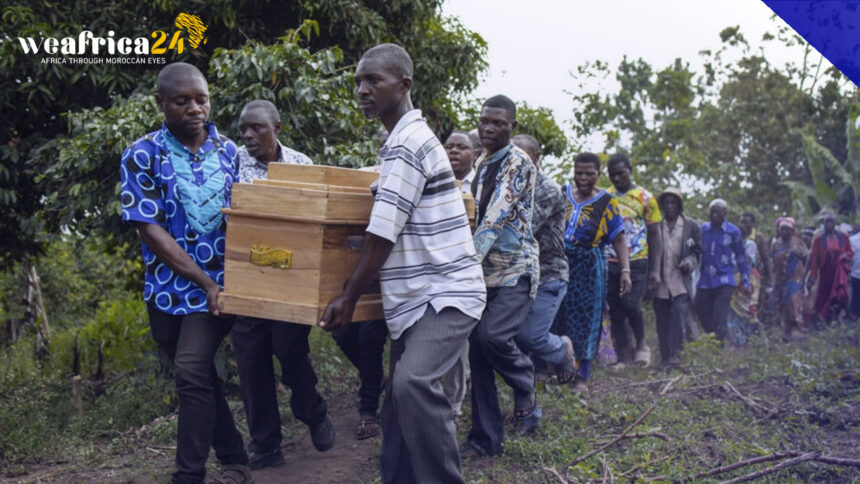Uganda is once again grappling with attacks by the ADF rebels, who, on Christmas day, burned a woman and two children alive in a village in the Western district of Kamwenge. This region, close to the Congolese border, had already witnessed an attack last week, also attributed to the ADF, resulting in 10 deaths. The persisting violence has raised criticism from the population against the authorities.
These attacks underscore the ongoing violence perpetrated by militias affiliated with the Islamic State despite joint security operations by the Ugandan and Congolese armies.
“We were promised total security, but the ADF rebels have returned and are killing our people,” emphasized Bishop John Wilson Nandaah of the Mbale diocese in a Daily Monitor op-ed on Wednesday. He pointed out that residents in the Rwenzori sub-region are living in fear, urging authorities to enhance security in western Uganda.
This statement contradicts the official stance. President Yoweri Museveni claims significant military successes in the fight against the ADF. On December 13, he stated that around 200 ADF members had been killed in airstrikes conducted by Ugandan forces in the Democratic Republic of Congo.
The president attributes the recent attacks by the group to “terrorists desperately fleeing the bombings in Congo.”
The question remains as to whether ADF rebels have shifted their activities from North Kivu to Western Uganda. Their recent raids targeting a school and a national park in the region suggest this possibility.
More mobile and less numerous, ADF rebels now move in small groups in their operational areas in the provinces of North Kivu and Ituri, and now also in western Uganda. This modus operandi allows them to hide more effectively, facilitated by the porosity of borders. Tolit Atiya, co-founder of the Nile Valley Institute for Political and Security Studies, explains:
“They are itinerant troops. The ADF no longer has specific operational bases. Unlike in the past, they no longer seek to control territory. They move in small cells. The border between Uganda and the Democratic Republic of Congo is porous, with many crossing points.”







